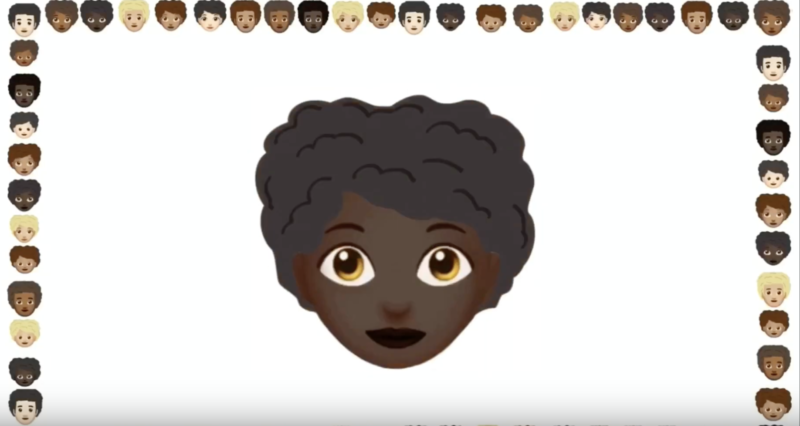Emojis have become a social phenomenon. These simple, bitesize illustrations have shifted the way people communicate digitally and have become a vital method of conveying emotion and imagery. Now, two designers want to make sure Black hairstyles are included in them.
Rhianna Jones and Kerrilyn Gibson are trying to bring Afromojis to the Unicode Consortium, the non-profit that makes the ultimate decisions on emojis. The two are currently working to get 5,000 signatures on their Change.org petition to be selected in Unicode’s 2020 slate of emojis. So far, the petition has 3,600 signatures. Unicode accepts 70 new emojis a year, according to the New York Times.
Jones has deep roots in the fashion industry and Gibson is a graphic designer who has experience in sales for a jewelry company. The duo wants to use their experience to create emojis that reflect the various hairstyles and hair textures of people from the Diaspora.
“Many Black, Afro-Latinx and diasporic users like myself don’t see our hair or cultural identities reflected in our keyboards,” Jones told AfroTech. “It’s really bigger than an emoji, its an entire culture being disregarded in digital spaces.”
Jones got the idea for Afromoji three weeks ago and pitched her idea to Gibson after the two met through a mutual friend. Gibson’s design background made her the perfect partner for the project.
“I immediately said yes because I realized the huge impact it could possibly have,” Gibson said. “I think we are used to being forgotten because European standards of beauty are so pervasive, but Rhianna and I knew that if we were seeking representation within the digital space that other people would be too.”
Gibson said that when she is designing the emojis, she wants them to “be unmistakably an Afro.”
Unicode’s emojis have become increasingly inclusive. There are now various skin tones, gender representation in jobs and sports, and a duo of emojis with textured hair. Jones and Gibson want to expand the offering to include styles like braids, dreadlocks, puffs and afros.
“We’re not an entire tech company, just two young women trying our best,” Jones said. “I felt compelled to do this rather than [to] wait for them.”

